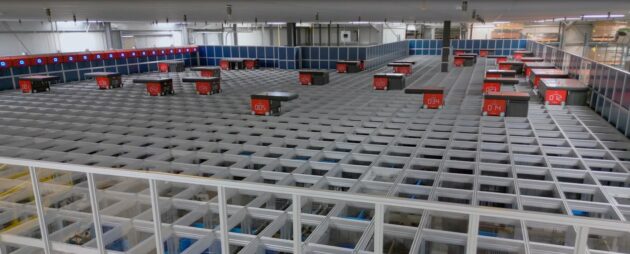
Lee Valley Tools invests in new technology in Ont.
by CM Staff
The Auto-store, is a micro-fulfillment center that will allow Lee Valley Tools to consolidate 36,000 square feet of picking locations into 6000 square feet, freeing up space for them to expand manufacturing.

(CNW Group/Lee Valley Tools)
OTTAWA — Lee Valley Tools has made a significant investment in technology, trying to keep operations in Ottawa, Canada. This strategic investment marked by the opening of the Auto-Store distribution center in Carp, Ontario, emphasizes the company’s focus on a long-term community investment.
The Auto-store, is a micro-fulfillment center that will allow Lee Valley Tools to consolidate 36,000 square feet of picking locations into 6000 square feet, freeing up space for them to expand manufacturing. The structure will have 18,000 bin locations for storing Lee Valley products and 42 shuttles on top of the structure to retrieve products for their warehouse pickers.
“The opening of Auto-Store is more than a business decision; it’s a commitment to our roots here in Ottawa and prosperity for the Canadian economy,” says Jason Tasse, President and COO of Lee Valley Tools. “As a family-owned and Canadian operated household name, our strategic choices speak volumes to the courage and boldness of our company, as we continue to respond to the ever-changing economic landscape.”
Through the implementation of technology, the company will work to elevate efficiency, strengthen market position and augment job satisfaction and protection for core employees. As a result, the investment in modernizing operations will enhance business operations and production during peak shopping periods, reduce handling times and increase order efficiency.
“By investing in manufacturing and automation, we are strengthening our foundation and helping employees with tasks that involve undesirable work like repetitive lifting and walking all day,” says Tasse. “The more efficient we can make our operations, the more flexibility we have to adapt to disruptions that may occur during seasonal hiring periods and can scale appropriately as needed.